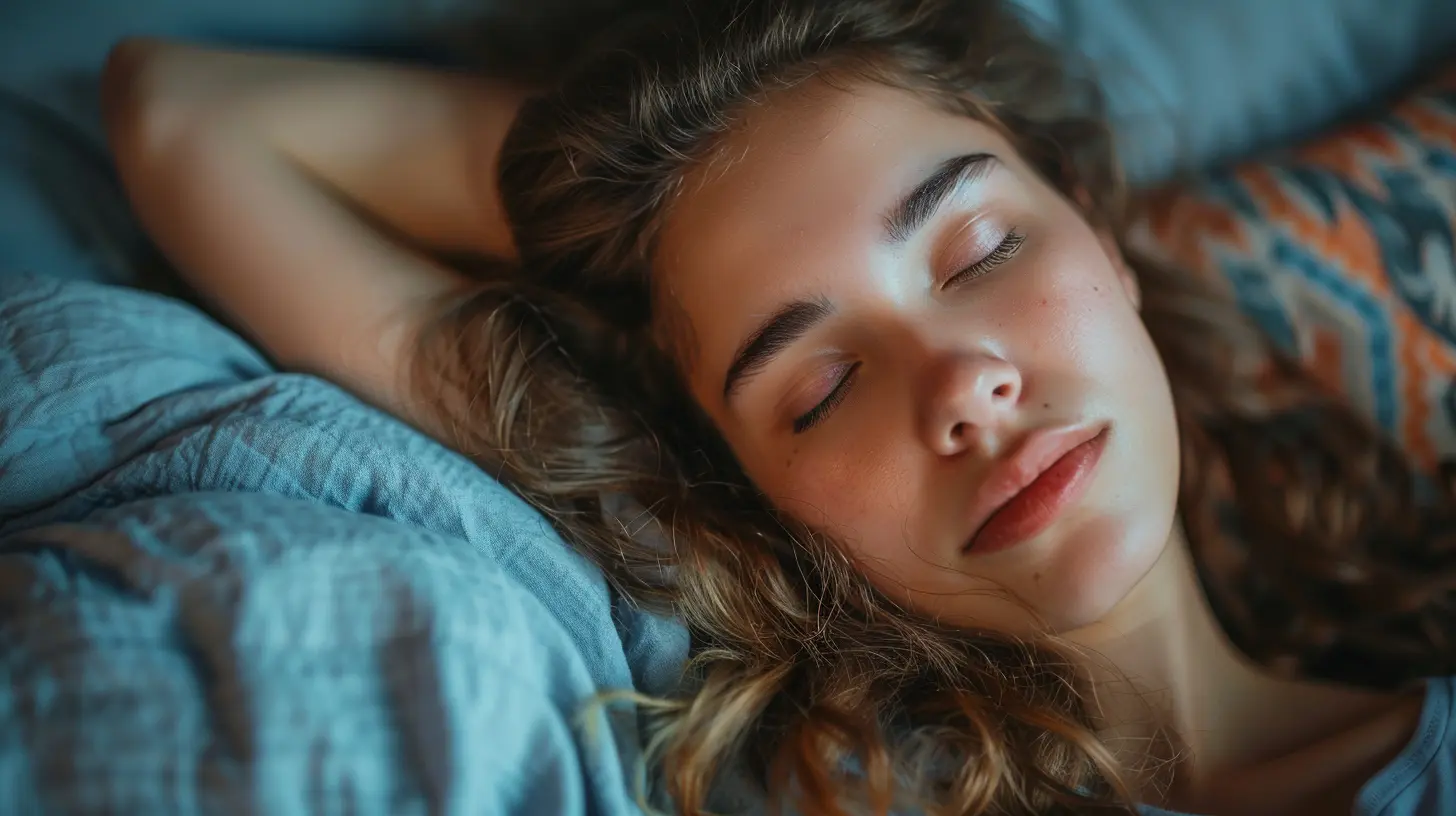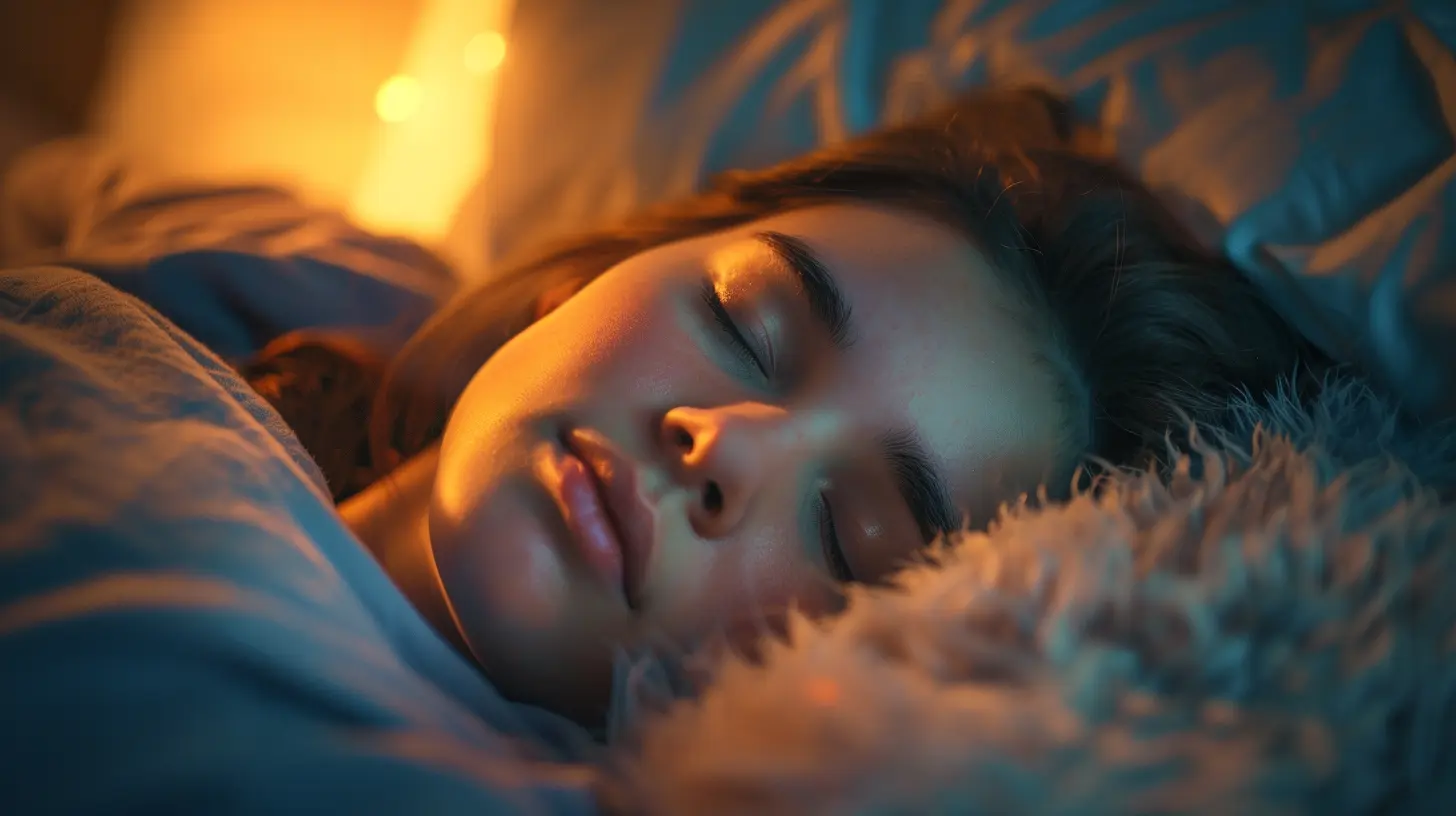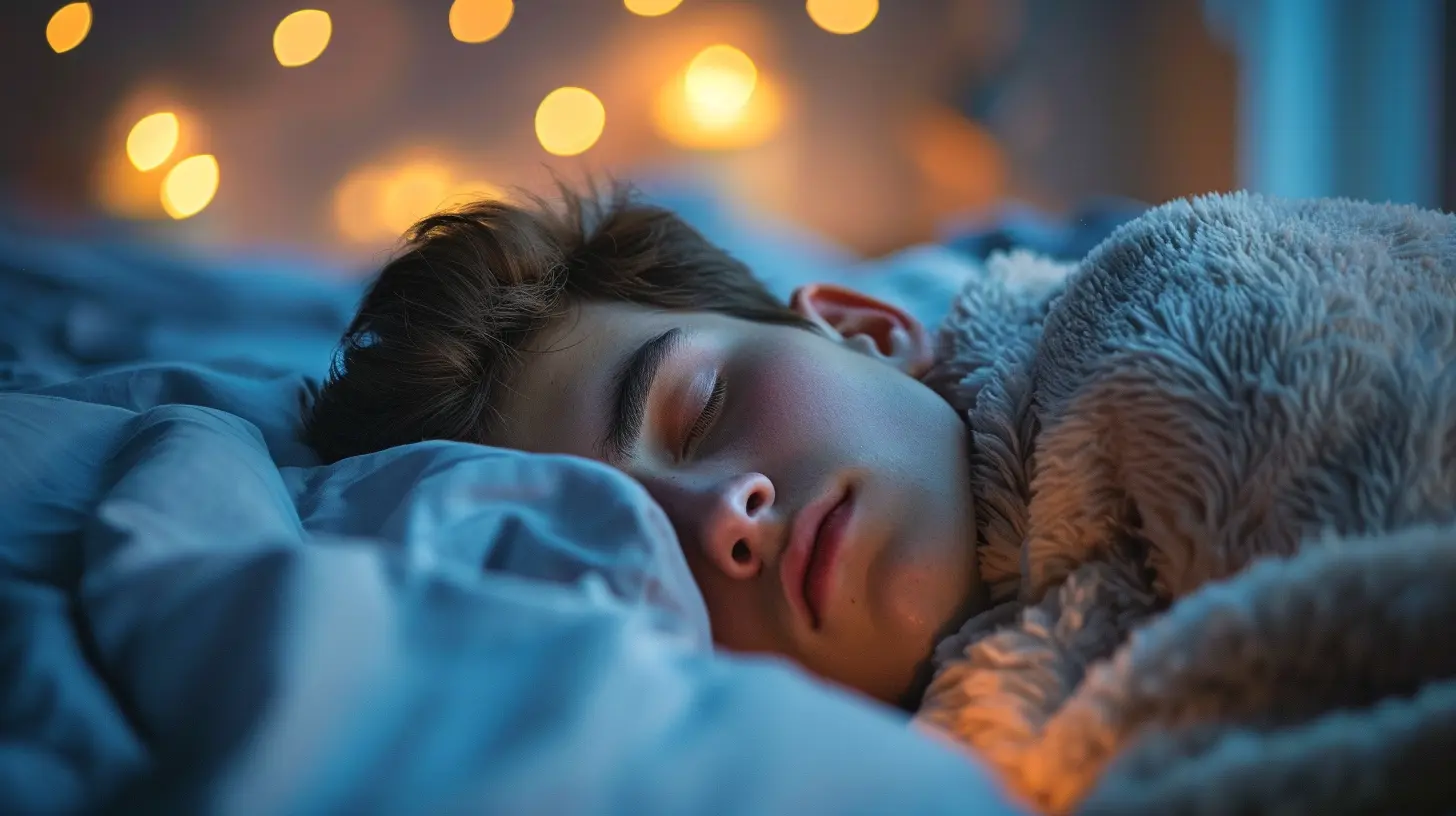How Exercise Can Improve or Disrupt Your Sleep
29 July 2025
Let’s talk about something we all crave but don’t always get enough of: good sleep. You know that blissful kind where you wake up feeling like you could high-five a rainbow? Yeah, that kind. While there are a million sleep hacks floating around the internet (blue light glasses, breathing techniques, pillow sprays—take your pick), there's one method we often overlook or misunderstand: exercise.
Yup, breaking a sweat can be your golden ticket to dreamland... or it can backfire and leave you tossing and turning. Sounds a bit contradictory, right? Well, let’s dive deep into how exercise can either be your sleep’s best friend—or its worst nightmare.
Why Sleep and Exercise Are Besties (Most of the Time)
Let’s start with the good news. In most cases, regular physical activity helps you sleep better. It’s like a one-two punch combo: you sleep better, you feel more energized to work out, which in turn leads to better sleep. It’s a beautiful loop when it works well.1. Exercise Helps You Fall Asleep Faster
Ever noticed how you conk out quicker after a physically exhausting day? That’s not just in your head. Exercise increases your body’s energy demand, and when it's time to hit the bed, your body basically says, “Okay, I’m done—lights out!”This is because physical activity helps regulate your sleep-wake cycle (aka your circadian rhythm). Think of it like syncing your body clock with the sun: wake up, get moving, burn energy, rest. Simple enough, right?
2. It Boosts Deep Sleep
Not all sleep is created equal. There are different stages, and the gold mine is deep sleep—where your body repairs itself, your brain processes information, and you wake up feeling truly refreshed. Studies show that physical activity, especially aerobic exercise like running or swimming, can increase the amount and quality of deep sleep you get.3. Reduces Stress and Anxiety
Let’s be real—stress is a killer when it comes to sleep. That never-ending thought loop at 3 AM? Yup, stress is behind the wheel. Exercise, especially something rhythmic and repetitive like jogging, cycling, or even walking, helps lower cortisol (your stress hormone) and boosts endorphins (the dopamine hit you need). Less stress = better sleep.
So When Does Exercise Mess With Your Sleep?
Now, let’s flip the coin. Can exercise ever mess up your sleep rather than help it? Unfortunately, yes. And it usually comes down to when and how you do it.1. Exercising Too Late in the Day
This one’s a biggie. If you hit the gym at 9 PM and expect to be snoozing by ten, you're setting yourself up for disappointment. Why? Because intense workouts jack up your adrenaline levels, increase your heart rate, and spike your core body temperature. All of which scream “wake up!” when your body should be powering down.It’s like trying to fall asleep right after downing a triple espresso. Doesn’t work, right?
2. Too Much Intensity, Not Enough Recovery
Overtraining can have the opposite effect of what you want. Instead of feeling relaxed and worn out, your nervous system stays revved up. You may end up stuck in a state of fatigue that doesn’t translate to restful sleep. It’s like revving your car engine all day long and expecting it to cool down instantly—spoiler: it won’t.3. The Cortisol Curve
Remember that stress hormone, cortisol? It naturally peaks in the morning and dips in the evening. But if you’re doing heavy lifting or HIIT sessions close to bedtime, you might be throwing that rhythm off. A late-night cortisol spike can make it harder for your body to relax and transition into sleep mode.
Best Time to Exercise for Optimal Sleep
Okay, so if late-night workouts are a dicey move, when should you be working out?💡 Morning Workouts = Chef’s Kiss
Morning exercise, especially something aerobic (think jogging, biking, swimming), can really set the tone for your entire day. It helps anchor your circadian rhythm, gives you a natural energy boost, and makes your body more likely to feel sleepy at night when it’s supposed to.🕒 Afternoon Workouts = A Close Second
Around 3–5 PM, your body temperature and alertness naturally peak, making it a great time for more intense sessions like weight training or a spin class. You still get the physical benefits without messing with your sleep patterns.🌙 Evening Workouts = Proceed With Caution
If evenings are your only option, no worries—you don’t have to ditch your routine. But ease up on the intensity. Light yoga, stretching, or a calm walk can actually aid sleep by helping your body wind down. Just avoid anything that gets your heart thumping like crazy.
Different Types of Exercise and Their Impact on Sleep
Let’s break it down further. Not all workouts are created equal when it comes to your zzz’s.🏃♂️ Aerobic Exercise
Cardio is your best bet for improving sleep. We’re talking brisk walking, swimming, running, or even dancing around your living room like no one’s watching. Regular aerobic activity boosts sleep quality and helps with insomnia. It’s the MVP in this conversation.🧘♀️ Yoga and Stretching
If you need a wind-down routine that’s gentle and calming, yoga is your go-to. It not only relaxes the body but also quiets the mind—which, let’s face it, is often the biggest barrier to good sleep.🏋️♀️ Strength Training
This one’s a bit trickier. While resistance training can help you fall asleep faster and wake less during the night, doing it too late in the evening might have the reverse effect. Keep your lifting sessions earlier in the day if sleep is a concern.Special Considerations: Who Should Be Extra Mindful?
Not everyone responds to exercise and sleep the same way. There are a few groups who may need a more nuanced approach.🧓 Older Adults
Exercise is a powerful tool for improving sleep in older adults, who often struggle with staying asleep. But for this group, the timing and intensity are especially important—lighter workouts done earlier in the day usually yield the best results.😴 People With Sleep Disorders
If you're dealing with insomnia or sleep apnea, regular physical activity can absolutely help—but it isn’t a cure-all. It’s best used as part of a broader treatment plan. Consulting a doc or a sleep specialist? Always a good move.🧠 People with Anxiety or Depression
Exercise acts like a mini therapy session for your brain. It balances mood, reduces anxiety, and helps regulate sleep patterns. But again, the name of the game is consistency and timing.Tips for Using Exercise to Improve Sleep (Not Ruin It)
Let’s put this into a real-life action plan, shall we?- Stick to a routine: Consistency is key. Your body loves predictability.
- Avoid intense workouts 1–2 hours before bed: Give your nervous system time to chill.
- Hydrate, but not too close to bedtime: Waking up to pee three times is a sleep killer.
- Incorporate stretching or yoga in the evenings: Especially if you’re still feeling restless.
- Listen to your body: If you're feeling wired after workouts, dial it back or shift the time.
Final Thoughts
Exercise and sleep are like peanut butter and jelly—they just go better together. But just like too much peanut butter can ruin the sandwich, poor timing or overdoing fitness can backfire on your sleep.The bottom line? Move your body regularly and pay attention to how your workouts affect your nights. Chances are, a few simple tweaks in your routine can turn you into the kind of person who actually looks forward to bedtime.
So, what’s your next move? A morning walk? A midday jog? A chill yoga session before sunset? Whatever it is, your sleep will thank you.
all images in this post were generated using AI tools
Category:
Sleep DisordersAuthor:

Angelo McGillivray
Discussion
rate this article
1 comments
Lily Reyes
In the dance of dusk and dawn, Movement sways—rest's gentle song. Exercise, a double-edged gift, Lifts the weary, yet can shift Our dreams; balance is the key, Find your rhythm, sleep set free.
August 7, 2025 at 2:40 PM

Angelo McGillivray
Thank you for your poetic reflection! You've beautifully captured the balance between exercise and sleep. It's a reminder that finding the right rhythm is essential for our well-being.


